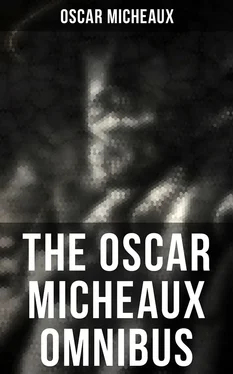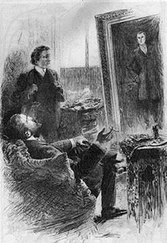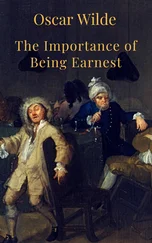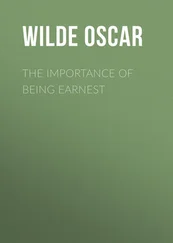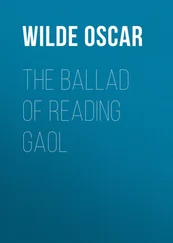"Never mind, my son, just never mind. I can get along," said the Reverend, keeping his head turned and appearing ill at ease, though I thought nothing of that at the time.
"I wouldn't think of such a thing!" I answered, protesting that he was not able to pay her way. "I wouldn't think of allowing her to accept it."
"Now! Now! Why do you go on so? Haven't I told you I have enough?" he answered in a tenor voice, trying to appear winsome.
Feeling that I knew his disposition, I said no more, but as we were passing the bank, I started to enter, saying to my wife:
"I am going to get you some money."
She caught me by the sleeve and cried excitedly: "No! No! No! Don't, because I have money." Hesitating a moment and repeating, "I have money."
"You have money?" I repeated, appearing to misunderstand her statement. "How did you get money?"
"Had a check cashed," she answered nervously.
"O, I see!" I said. "How much?"
"Fifty dollars," she answered, clinging to my arm.
"Good gracious, Orlean!" I exclaimed, near to fright. "We haven't got that much in the bank."
"Oh! Oh! I didn't want to," and then called to her father, who was just coming with the baggage: "Papa! Papa! You give Oscar back that money. He hasn't got it. Oh! Oh! I didn't want to do this, but you said it would be all right, and that the cashier at the bank, where you got it cashed, called up the bank in Calias and said the check was all right. Oh! Oh!" she went on, beside herself with excitement, and holding her arms out tremblingly and repeating: "I didn't want to do this."
I can see the look in his face to this day. All the hypocrisy and pretense vanished, leaving him a weak, shame-faced creature, and looking from one side to the other stammered out:
"I didn't do it! I didn't do it! You—You—You know, you told her she should write a check for any money she needed and she did it, she did it."
Here again my desire for peace over-ruled my good judgment. Instead of stopping the matter then and there, I spoke up gravely, saying:
"I don't mind Orlean's going home. In fact, I want her to go home and to have anything to help her get well and please her, but I haven't the money to spare. Her sickness, with a doctor coming into the country twice daily, has been very expensive, and we just have not the money, that is all."
When he saw I was not going to put a stop to it, he took courage and spoke sneakingly:
"Well, the man in the bank at Carlin called up the bank of Calias, and they said the money was there."
"O," I said, "as far as that goes, I had five hundred dollars there last week, it has all been checked out, but some of the checks likely are still out."
I took twenty-five dollars of the money and gave Orlean twenty-five dollars. Her ticket was eighteen dollars. I went with them as far as Calias, to see how my account stood. I kissed Orlean good-bye before leaving the train at Calias, then I went directly to the bank and deposited the twenty-five dollars. The checks I had given had come in that morning, and even after depositing the twenty-five, I found my account was still overdrawn thirty dollars.
CHAPTER XXXIX
BEGINNING OF THE END
Table of Contents
I waited to hear from my wife in Chicago but at the end of two weeks I had not heard from her, although I had written three letters, and a week later I journeyed to Colone and took a train for Chicago. When I called at the house the next day her mother admitted me, but did not offer to shake hands. She informed me Orlean was out, but that it was the first time she had been out, as she had been very sick since coming home. When I asked her why Orlean had not written, she said
"I understand you have mistreated my child."
"Mistreated Orlean!" I exclaimed. Then, looking into her eyes, I asked slowly, "Did Orlean tell you that?"
"No," she answered, looking away, "but my husband did."
Gradually, I learned from her, that the Reverend had circulated a report that Orlean was at death's door when he came to her bedside; if he had not arrived when he did, she would have died, and when she was well enough to travel, he brought her home.
It was at last clear to me, as I sat with bowed head and feeling bewildered and unable to speak. I recalled the words of Miss Ankin eighteen months before, "the biggest rascal in the Methodist church." I remembered the time I had called and saw him driving his wife, who was now sitting before me, and the rest of it. I saw all that he had done. He had abused this woman for thirty years, and here and now, out of spite and personal malice, because I had criticized the action of certain members of the race, and eulogized the work of Booker T. Washington, whom the elder, along with many of the older members of the ministry, hated and would not allow his name mentioned in his home, I was to lose my wife, to pay the penalty.
He had disliked me from the beginning, but there had been no way he could get even. He was "getting even," spiting me, securing my wife by coercion, and now spreading a report that I was mistreating her, in order to justify his action.
"Mrs. McCraline," I said, speaking in a firm tone, "Do you believe this?"
Evading the direct question, she answered:
"You should never have placed yourself or Orlean in such a position." And then I understood. When Orlean had written her mother of the coming of the child, Mrs. McCraline had not written or told the Reverend about it.
I now understood, further, that she never told him anything, and never gave him any information if she could avoid it. What my wife had told me was proving itself, that is, that they got along with her father by avoiding any friction. He could not be reasoned with, but I could not believe any man would be mean enough to deliberately break up a home, and that the home of his daughter, for so petty a reason. It became clear to me that he ruled by making himself so disagreeable, that everyone near gave in to him, to have peace.
He had only that morning gone to his work. On hearing me, Ethel came downstairs and called up Claves. A few minutes later her mother called me, saying Claves wanted to talk to me. When I took the receiver and called "hello," he answered like a crazy man. I said:
"What is the matter? I do not understand what you are talking about."
"What are you doing in my house, after what you said about me?" he shouted excitedly.
"Said about you?" I asked.
"Yes," he replied, "I hear you treated my wife like a dog, after I sent her out there to attend to your wife, called me all kinds of bad names, and said I was only a fifteen-cent jockey."
"Treated your wife ugly, and called you a jockey," here I came to and said to myself that here was some more of the elder's work, but I answered Claves: "I haven't the faintest idea of what you are talking about. I treated your wife with the utmost courtesy while she was in Dakota, I never mentioned your name in any such terms as you refer to, and I am wholly at a loss to understand the condition of affairs I find here. I am confused over it all."
"Well," he answered, "suppose you come down to where I work and we will talk it over."
"I'll do that," I answered, and went down town where he worked on Wabash avenue.
One thing I had noticed about him was, that while he was ignorant, he was at least an honest, hard-working fellow, but was kept in fear by his wife and the elder. I saw after talking to him, that he, like Mrs. McCraline, did not believe a word of what the Reverend had told about my mistreating his daughter, and that he submitted to the elder, as the rest of the family did, for the sake of peace. But they were all trained and avoided saying anything about the elder.
During the conversation with Claves he told me he kept up the house, paid all the grocery bills, and half the payments. He had been advanced to a salary of eighteen dollars a week and seemed to be well liked by the management.
Читать дальше
